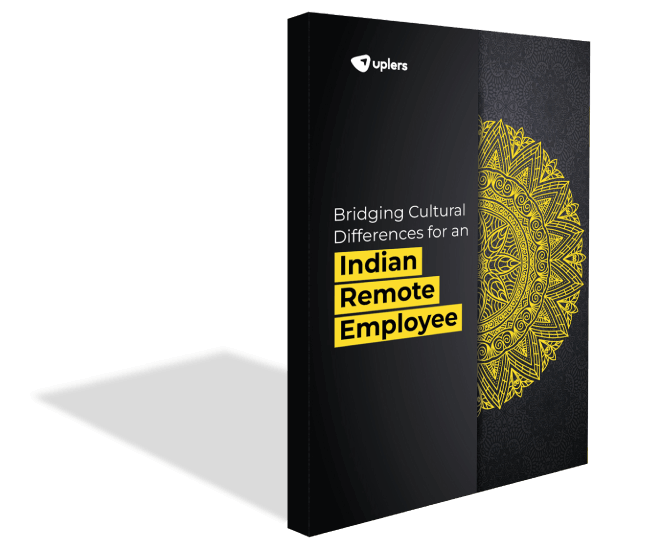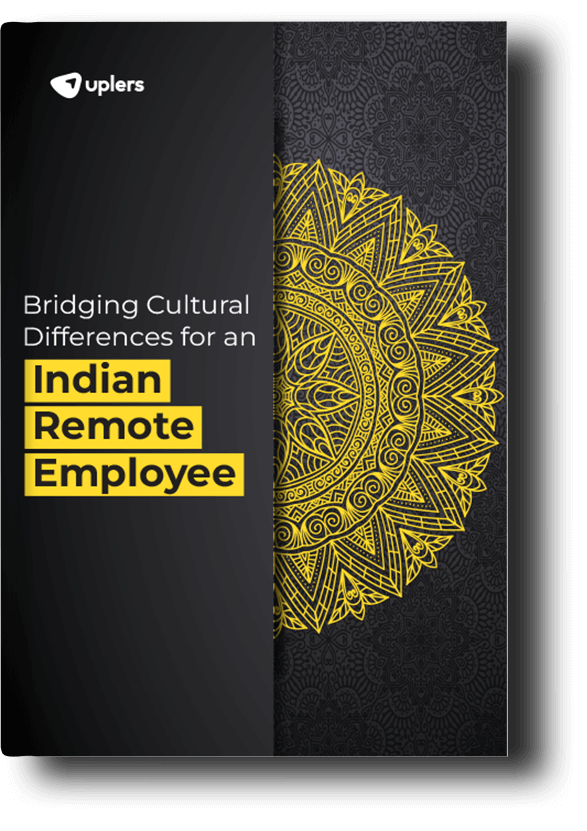How Tech and Digital Agencies Can Manage Distributed Teams for Remote Effectiveness
- Raunak Jain
- September 6, 2023
- 6 Minute Read

Remote hiring is growing at an unprecedented rate across the globe. Access to a wider talent pool and reliable offshoring employment partners have made it easy for digital agencies to fulfill their talent needs. In this regard, India has risen as the most preferred country for offshoring requirements, mostly due to its massive talent pool of 6.5 million skilled, remote-ready, and cost-effective digital talents.
However, a study reveals that 40% of digital agencies find it difficult to manage their remote talents post-onboarding. Clearly, managing a remote team requires a different approach from sourcing remote talents. But what exactly should you do?
In this blog, we will discuss the common challenges digital agencies face in managing Indian remote talents and suggest strategies to overcome them.
Challenges of Managing Remote Teams from India
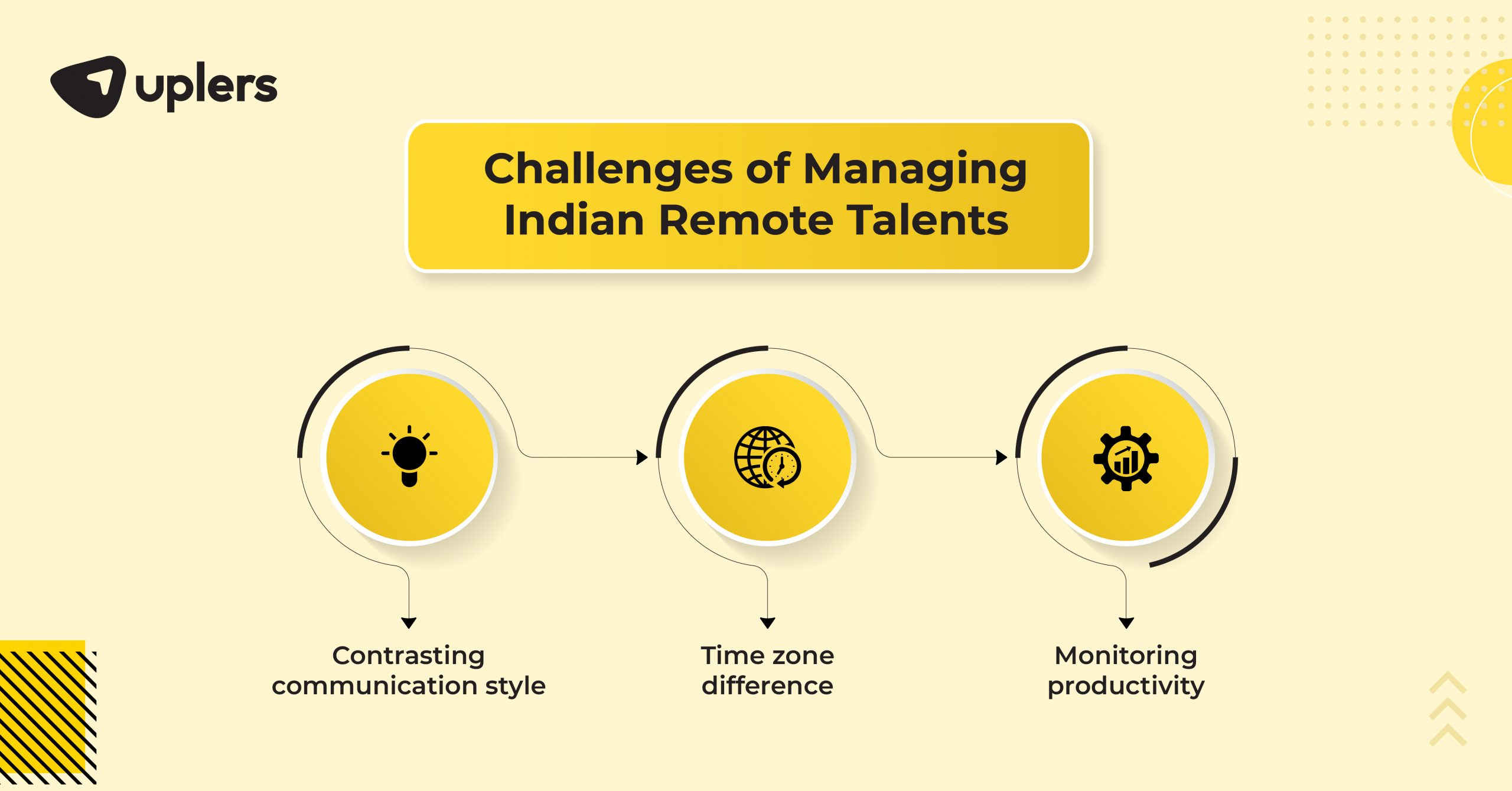
Contrasting communication style
The Indian talents are used to communicating in a high-context form of communication which involves body language and non-verbal cues. They respect the hierarchy and avoid using harsh tones or detailed questioning to avoid any confrontation, preferring to discuss larger topics separately from a group. However, global digital agencies prefer a straightforward communication style where everybody is open to add their viewpoints. This difference in propagating ideas can lead to some disconnect between managers and Indian talents and impact remote team management.
Time zone difference
If you want to find cost-effective and skilled talents in India, you must face the caveat of the time zone difference. The impact of this challenge is visible in coordinating and managing a remote team, as one talent may have to work at odd hours to complete any urgent task from a team in another country. Therefore, many global agencies are compelled to either ask the talent to work in night shifts or let them work during daytime asynchronously.
Monitoring productivity
Digital agencies are bound by deadlines and it is important to maintain productivity across all levels. It becomes very difficult in a remote environment to measure how well a talent is performing by simply looking at their daily output. There needs to be a system in place that helps in tracking the efficiency of the remote talents for effectively managing teams remotely.
Strategies for Managing Remote Teams
- Clear communication protocols
- Establish a remote-friendly culture
- Goal setting and performance management
- Promote flexible work timings
- Using technology and tools for productivity
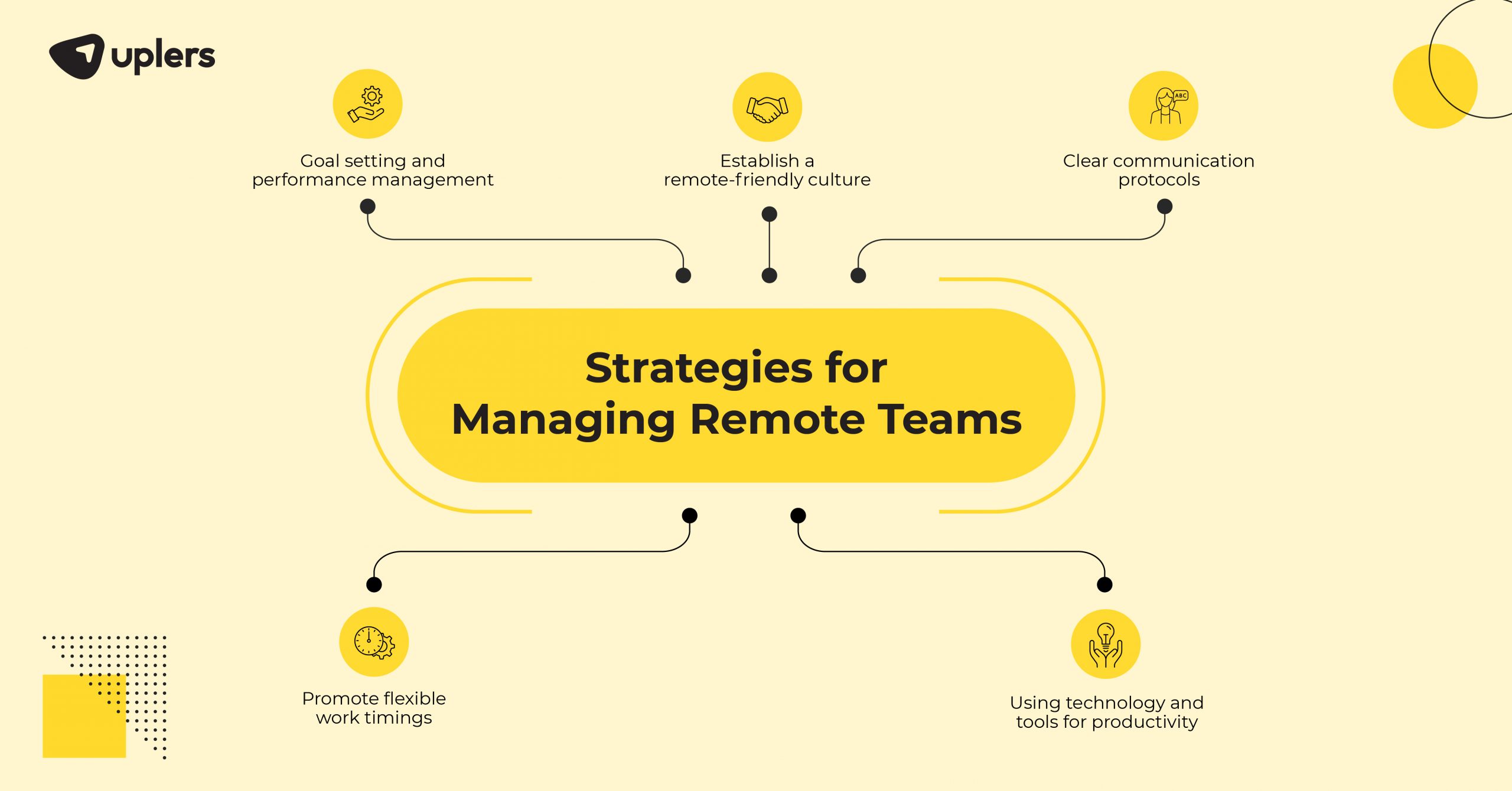
Hiring and managing a remote team are very distinct challenges. Once you onboard the remote talent, it is up to you to ensure they integrate well within the organization and do not feel misplaced in the team. It must be noted that managing a remote talent is very different from managing an on-site one, which is why you need a different approach.
Here are a few strategies that can help digital agencies in remote team management:
1. Clear communication protocols
You must establish communication channels and relevant protocols for reaching out to other employees across the agency. New hires are very reluctant to speak out in their first few days, as they aim to acclimatize with the company’s culture. Knowing how to reach out to someone will help them gain confidence and reduce communication challenges in remote team management.
It is also important to set a precedent of the expected response time, as nobody should be kept waiting for a long duration. Time is of the essence in remote collaboration and even slight delays can push deadlines. Develop a habit within the organization to respond to texts and emails as soon as possible to avoid any operational setbacks.
2. Establish a remote-friendly culture
Working in a remote setup requires the entire agency to be empathetic and trusting of each other. The trust between colleagues and managers to finish a project on time is essential to build understanding and team chemistry. Empathy for each other in a distributed setup helps in developing a sense of community and belonging, which further improves team engagement, job satisfaction, and overall well-being. This step will also help in managing cross-cultural remote teams.
3. Goal setting and performance management
One of the most important tasks for managers in digital agencies is to establish performance expectations with all the talents. To make it big in a fast-paced environment, like a digital agency, the employees must perform consistently well and meet client requirements. It takes only one team call to define the KPIs for the team members and explain how these goals will help in achieving bigger milestones. The remote talent will feel a valuable member of the organization once they start tracking these goals and their impact.
4. Promote flexible work timings
A digital agency in, let us say South Africa, has to overcome the time zone difference to leverage the massive Indian remote talent pool. In such a scenario, digital agencies must provide flexible work hours and set a workflow that accommodates the talent without compromising the quality of work. Several global companies hold regular meetings with their remote teams to check up on their activity and progress for the day. Asynchronous communication for team meetings is a good option, only if response time is not crucial.
5. Using technology and tools for productivity
There are several software and remote team management tools which aid in smooth communication and collaboration between remote teams. Zoom and Skype are the most popular voice and video conferencing tools for virtual team meetings. Microsoft Teams and Slack are used in many organizations for instant messaging and organizing channels of communication. Digital agencies can also use virtual whiteboards and project management platforms to make team meetings more interactive and ensure visibility about tasks.
Best Practices to Manage Distributed Teams for Remote Effectiveness
With the above strategies, you can also rely on some best practices of managing remote team effectively, trusted across several digital agencies:
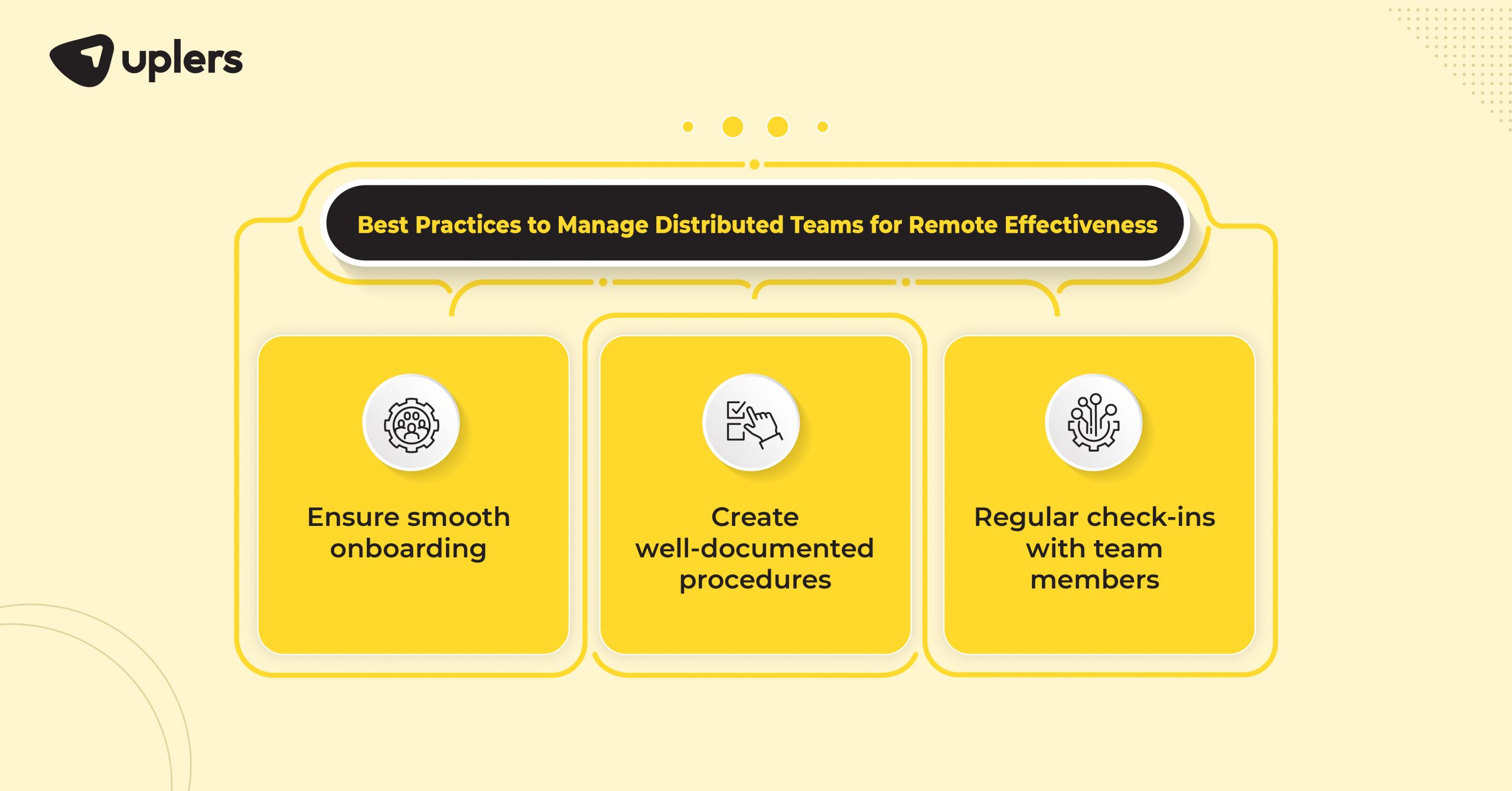
1. Ensure smooth onboarding
A survey reveals that organizations with a strong onboarding process improved their new hire retention by 82%. The onboarding experience sets the organization’s tone and approach towards everything and creates an everlasting impression on the talent. Challenges amplify in a remote setup, where everybody is virtually connected and the new hire needs a lot of hand-holding before they familiarize themselves with the workflow.
Manage all the paperwork as quickly as possible and lend a helping hand to the talent if they are facing any issues. The managers should introduce the talent with the larger team to build their rapport and break the ice. It is also important to field the talent’s questions and keep an open channel of communication to build trust, which will help in managing remote teams.
2. Create well-documented procedures
The standard operating procedures (SOP) vary in every agency. From a simple task like requesting leaves, to more responsible ones like dealing with a client’s requirements, there must be certain SOPs in place that set the workflow and eliminate vagueness regarding the next steps. Hence, it is up to the managers to prepare these procedures and populate them across the remote team, so everybody knows the next actionable step without asking around.
3. Regular check-ins with team members
In an on-site opportunity, it is very easy to simply walk to the next desk and check up on a colleague. In a remote scenario, however, managers will not notice if the talent is skipping their lunch or juggling too many tasks at once, proving a challenge to managing a remote team. This is why it is important to check up with the remote team members on a daily or a weekly basis to understand their workload, challenges, and deadlines. You should also inquire about the existing tasks before assigning them something urgent.
Another good practice is to avoid overloading the inbox of other team members. For example, “reply all” is only necessary if the entire group has to be updated. By keeping only relevant stakeholders in a particular conversation you can avoid other members from constantly switching windows to check up on mail which does not even concern them.
And this is how you can ensure full productivity and effective remote team management in a distributed setup. Use the above points as your reference to keep your remote talents motivated and aligned with the agency’s culture.



Thank you for submitting the details!
We will keep your information safe. Feel free to contact us with any questions at hello@uplers.com
Please check your email for next steps shared by Robert.
![How to Hire an SEO Expert from India: Guide for Hiring Managers [+SEO Specialist Job Description Tips and Salary Analysis]](https://www.uplers.com/wp-content/uploads/2024/03/How-to-hire-an-SEO-expert-from-India-Guide-for-hiring-managers-Job-description-tips-and-salary-analysis-436x265.jpg)

![Overcoming Employee Retention Challenges with Strategic [+Compensation Analysis & Real-Time Data]](https://www.uplers.com/wp-content/uploads/2024/02/unnamed-2-436x265.jpg)
